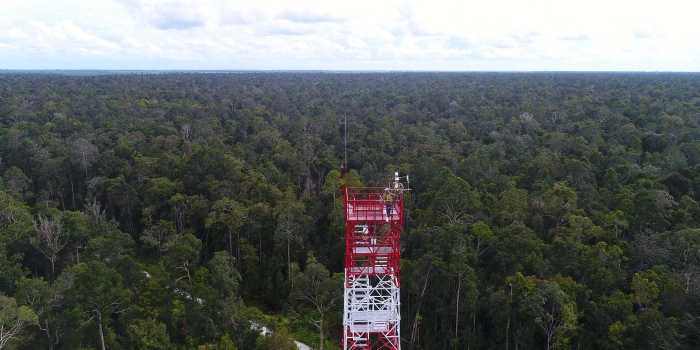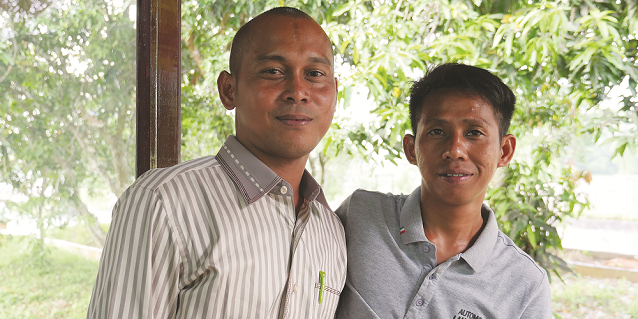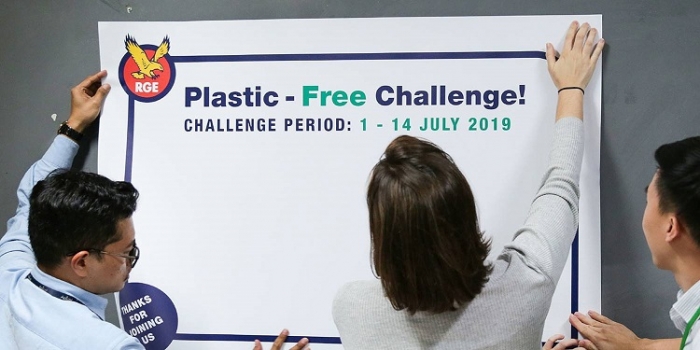RGE Director Anderson Tanoto wrote an opinion editorial published in The Jakarta Post on June 29, 2015.
Spotlight on agriculture
He outlined the important roles rural Indonesia and agriculture can play in the nation’s economic growth, saying Indonesian President Joko Widodo’s call for a shift from a consumption-based economy to a production-based economy now casts the spotlight back on agriculture:
In the 1970s, the country grew rich from the export of crude oil.
In the following decade, crude oil prices crashed, along with the rupiah, at a time when oil and gas made up an overwhelming 80 percent of Indonesia’s exports. The country then started to industrialize and expanded into textiles, pulp and paper, furniture and palm oil. Now history is paying a repeat visit to Indonesia in the form of a commodities price collapse coupled with steep rupiah depreciation.
Against these ups and downs of contemporary history, agriculture affords the continuity of hope. Agriculture could provide the way out from consumption to production in the economy.
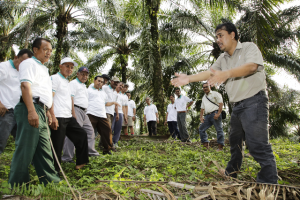
Smallholder farmers receiving training
The other 48%
With 48% of Indonesians living in rural areas, the economic contribution agriculture and villages provide should not only be seriously considered, but also tapped into:
[Rural Indonesia] could help to push the country to the next phase of growth, driven by production, that President Jokowi envisages. That shift would require two inputs.
First, there must be investment in skilled human capital to increase labor productivity. Although Indonesia has a high gross school enrollment rate, learning outcomes are unfortunately poor. The country ranked almost at the bottom in reading performance according to the organization for economic co-operation and development (OECD) Program for International Student Assessment.
Second, there must be expansion in the manufacturing sector, which is labor-intensive and therefore creates employment and accelerates growth.
Private-public partnerships for national growth
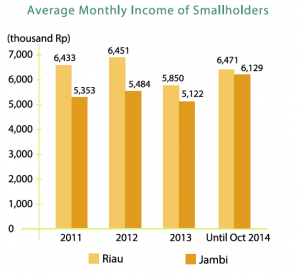
The private-public partnership has seen improvements in smallholders’ incomes.
He cited growth opportunities that can be built on success stories. For instance, instead of having the government leading rural development, private-public partnerships can pave the way for economic growth. This is evidenced by the story of Asian Agri, one of the pioneering palm oil companies to partner smallholders.
Today, about 40% of Asian Agri’s plantations are managed by smallholders. The palm oil company’s focus on the strong long-term partnership that involves skills and knowledge transfer, infrastructure and community development, has not only resulted in better yields for the smallholders, but also raised their living standards.
The palm oil industry illustrates the potential for this partnership. The traditional model was for companies to own and operate plantations. Now, most major companies collaborate with smallholders. This has resulted in the transfer of agricultural knowledge and best practices that enable farmers to improve land yields.
But why should companies, which are devoted to the bottom line, devote their energies to the uplift of people who are not their direct customers? The reason is that they enjoy clear economic benefits from the partnership.
Companies are guaranteed palm oil supplies, which they buy from the farmers at a price determined by the government, without having to meet labor costs or other overhead.
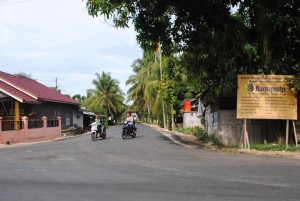
The arrival of APRIL Group in Kerinci has seen many improvements to the area, such as the paving of roads.
From a small village to a thriving hub
On the topic of transforming lives for the better, Anderson Tanoto shared the positive impact Asia Pacific Resources International Holdings Ltd or APRIL Group had in Pangkalan Kerinci, Riau Province, transforming it from a small village to a thriving hub:
Only 200 households inhabited Kerinci until the APRIL Business Group, a unit of RGE, set up its pulp and paper mill there more than two decades ago. Since then, transformation has been dramatic. The population has grown to 100,000, more than 90,000 direct or indirect jobs have been created and 85 percent of the town’s electricity needs are met by renewable energy generated by the mill.
He ended the editorial with a call to refocus attention on rural Indonesia as a critical player in the country’s growth:
Rural Indonesia is not an economic relic of the colonial past. It is a gateway to the future for an independent nation that is a member of the Group of 20 sunrise economies. Indonesia owes it to the working class, and to the population in general, to make the transition to that economy by focusing on its villages.
The full opinion editorial is available at The Jakarta Post.
Anderson Tanoto
Anderson Tanoto is a director of RGE (Royal Golden Eagle), a group of companies in the resource-based manufacturing industry founded by its Chairman Sukanto Tanoto. He also oversees fibre operations in APRIL (Asia Pacific Resources International Holdings Ltd), and is a member of the board of trustees at Tanoto Foundation International.







